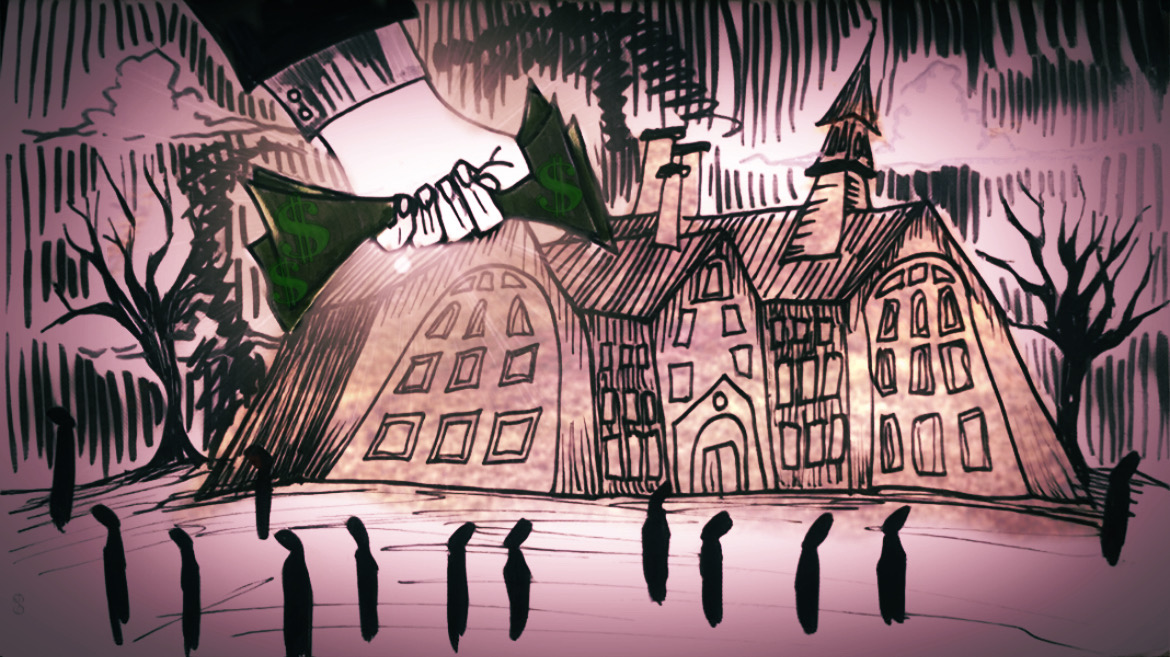Following housing registration, the new tiered housing system and rise in tuition costs has students worried about affording the upcoming semester.
For the 2024-25 school year, UVM has decided to end their six-year-long tuition freeze and is increasing out-of-state tuition by 3.5%, according to a Nov. 2, 2023 VTDigger article.
Additionally, the University announced that beginning in the fall, there will be a new three-tier dorm room rate system for students living on campus. This will break the dorms into “standard,” “enhanced” and “premium” categories depending on how nice the facility is.
All of these options will include a price increase ranging from 3% for standard dorms, 5% for enhanced dorms and an 8% increase for premium dorms.
Implementing a price increase based on the quality of housing threatens to divide dorms by class, as students who come from affluent families will be the most likely to be able to afford the increase in price.
Out of 377 selective public universities, UVM was ranked fourth for the largest proportion of the student body that come from the top 1% of median family incomes, according to a 2017 study conducted by the New York Times.
Furthermore, over half come from families in the top 5% of median family incomes compared to only 3.8% of students who are from the bottom fifth of income earners.
The increase in tuition and housing costs will make UVM even more inaccessible for low-income students and worsen the wealth gap among the student body.
This is not only an issue at UVM, but has also been seen at other higher education institutions across the country.
Students from families who make less than $100,000 per year can only afford 1% to 5% of colleges, according to a March 23, 2017 study conducted by the Lumina Foundation.
Even with financial aid and federal loans, about 70% of the colleges were still too expensive for low-income students, according to the National Association of Student Financial Aid Administrators.
The new version of FAFSA implemented this year was designed to make student aid easier to receive.
However, many students who have siblings also currently in college will be affected by the elimination of the sibling discount. This is detrimental to families who have multiple children in college, as the price of tuition will now increase for all of their children currently in college.
For families who are already struggling to pay for their children to attend college, this could lead to an increase in the number of students dropping out due to rising costs.
Approximately half of current college students at risk of dropping out claim the main reason is due to the cost of tuition as well as other essential college expenses such as textbooks, housing and food, according to an April 3 CNBC article.
The dilemma of college affordability is an issue of inequity as students who are able to afford college have greater access to resources and opportunities designed to promote their success.
The Patrick Leahy Honors College at UVM requires first-years and sophomores to live in University Heights, which received the greatest surge in price with an 8% increase in dorm room price.
“I do understand wanting to have Honors College all in one clump as a learning community. But if that’s not financially viable for someone, that shouldn’t be a reason to not be a part of it,” said first-year Honors College student Jaya Connor.
Requiring honors students to live in UHeights could potentially turn lower income students away from accepting a spot in the program, and lose the opportunities that come with it as well.
Honors College students receive benefits including early class registration, research opportunities and the same library privileges as UVM graduate students. This is on top of graduating with honors which could give honors students an edge when applying to jobs or graduate programs.
“Making UHeights the most expensive dorms, and then also saying you have to be in UHeights to be in the Honors College is just unfair,” Connor said. “Just live on Athletic or anywhere, but, make sure you’re still attending your seminar, or have more community events instead.”
This leads to many lower income students being left behind, regardless of grades or accomplishments in high school as the rising cost of the honors college adds an extra barrier.
UVM should be committed to fostering an equitable campus that supports students from diverse socioeconomic backgrounds and provides equal opportunities to current and future students of all backgrounds.














